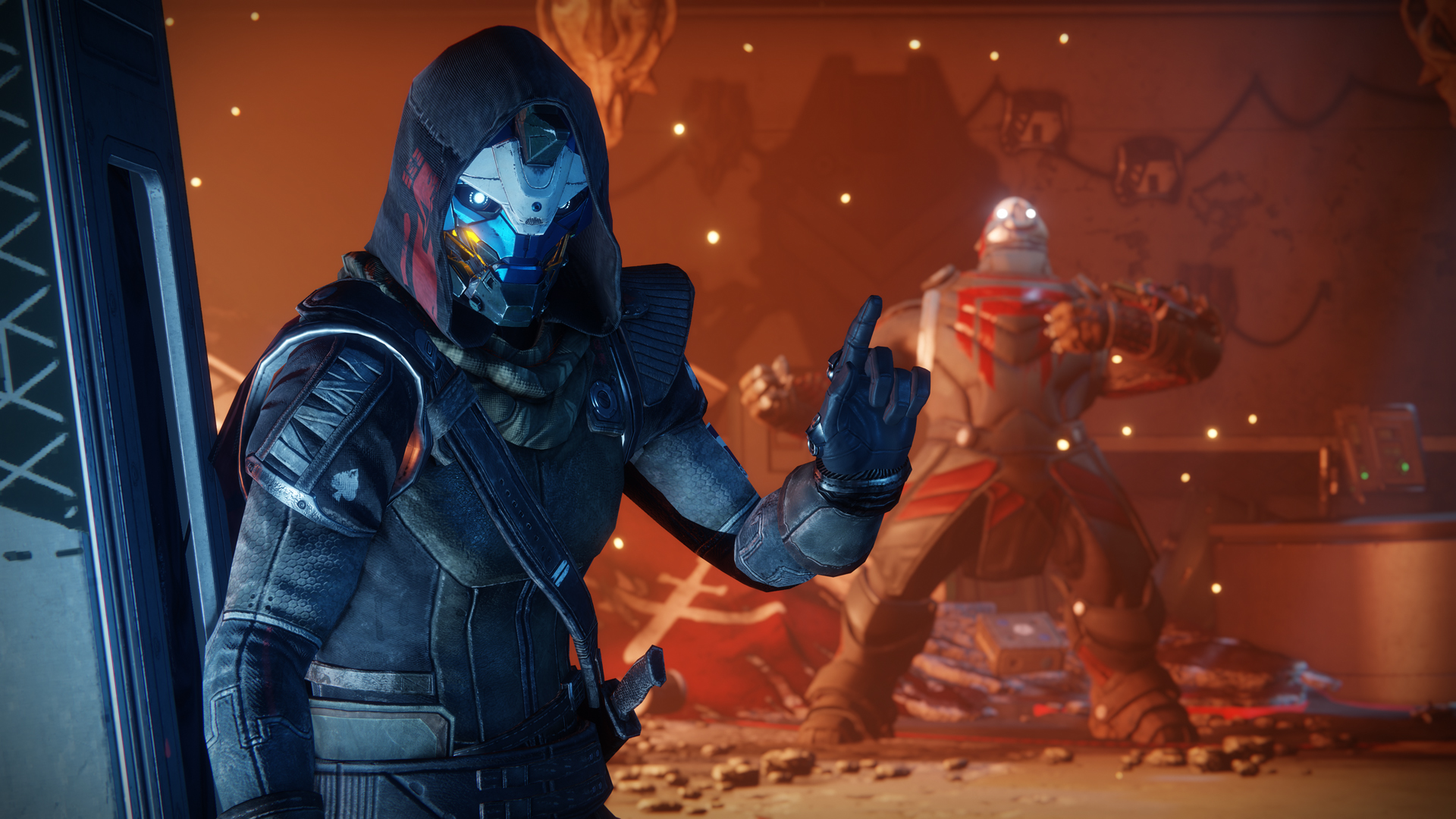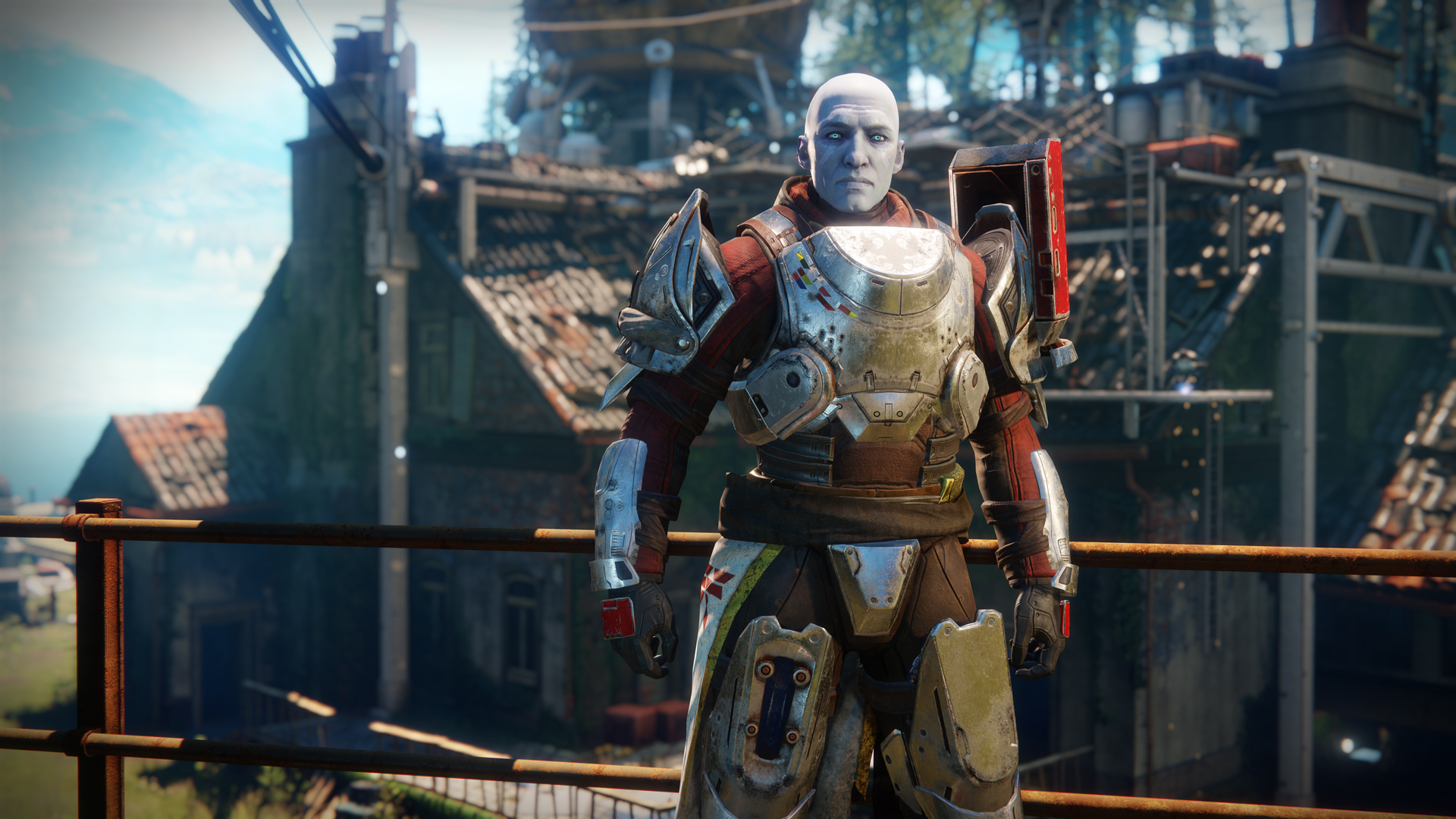Destiny 2’s ‘Go Fast’ update tells us a lot about the future of the game, but it also leaves important questions hanging in the air
The sandbox update has some good promise. But what it doesn't promise is just as important.
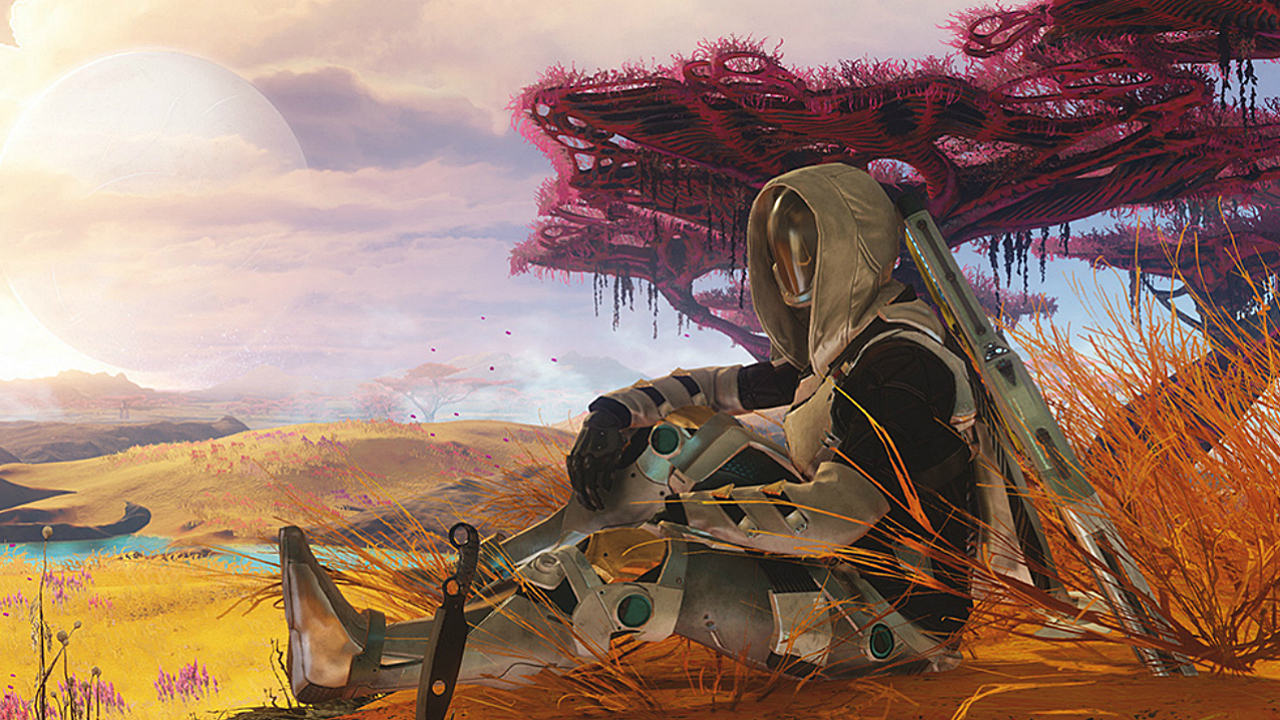
I’ve played more Destiny 2 in the last week than in all the other weeks since Christmas combined. This recent period has also provided the most compelling fun I’ve had with the game since finishing the campaign. That’s because this has been the week of Bungie’s grand 1.1.4 update, the long-awaited rebalance to Destiny 2’s movement and combat sandbox, designed to make meaningful changes to the sequel’s stale gameplay and distressingly short list of long-term play incentives.
Of course, Bungie has been tweaking and pruning Destiny 2 since launch, ducking and weaving from addition to improvement under a heavy rain of community complaint. That complaint has been justified, such is the degree that Destiny 2 has abandoned its precursor’s core values. It removed Destiny’s RPG depth, greatly reduced the long-term aspiration of meaningful loot grind, and delivered a pared down PvP with little scope for individual player expression. But while many updates have come and gone, 1.1.4 (aka. The ‘Go Fast’ update) was always going to be the first one that really mattered. Because Destiny 2 has needed bigger and more fundamental fixes than its predecessor ever did.
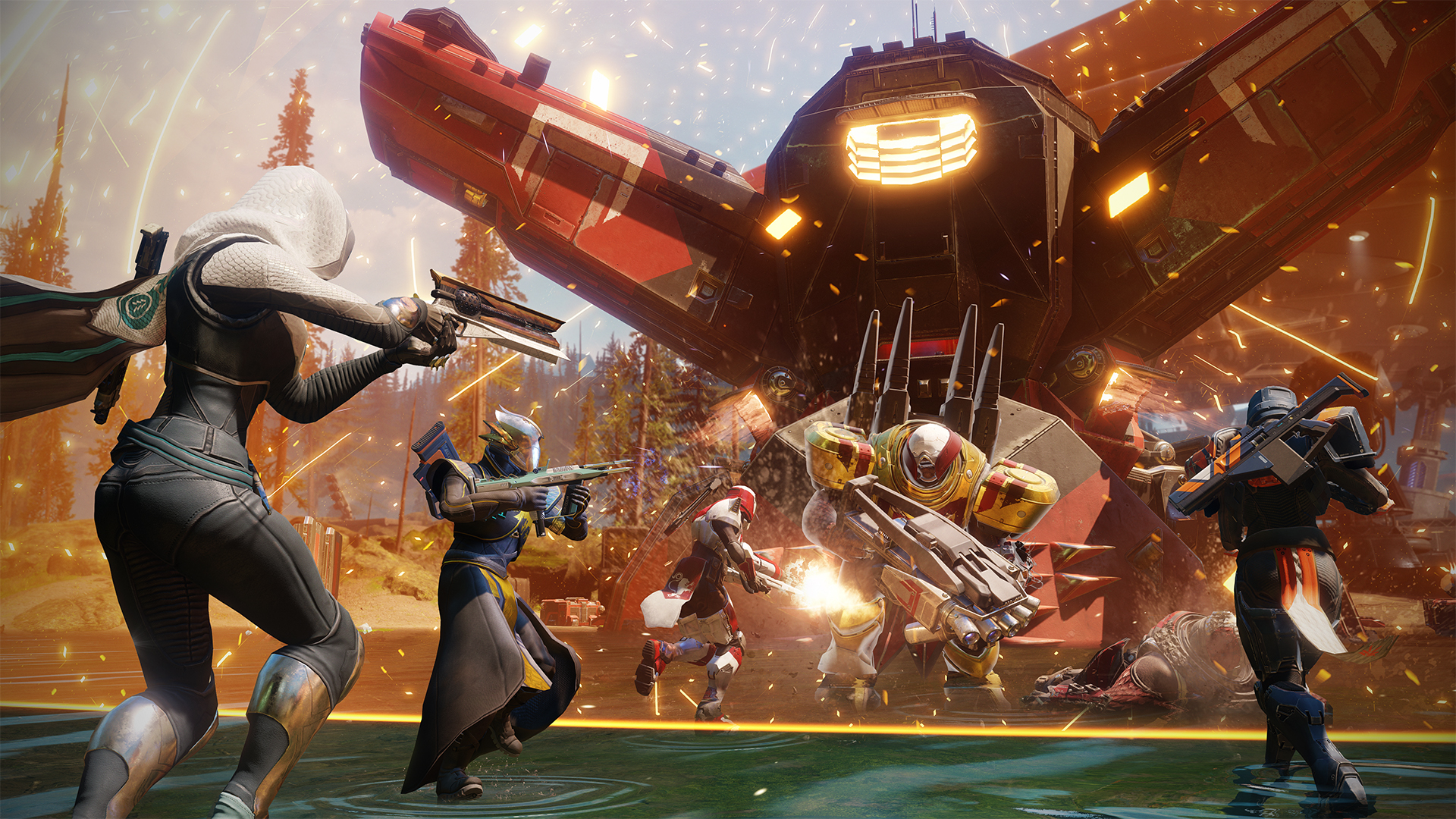
While the first Destiny had its fair share of year-one teething troubles, they largely related to an overly punitive progression economy and an over-abundance of in-game currencies. The core of the game, conceptually, was good. Destiny 2’s issues are far deeper baked at a philosophical level, and so the last few months of surface tune-ups and new gameplay events have been akin to drizzling frosting on top of a house fire. It was always going to take something as drastic – and slow to arrive – as 1.1.4 before anything of consequence changed.
And things have certainly improved, even if - as the main Destiny Reddit has accurately surmised - these sandbox changes cater more to keeping hold of existing players than overhauling things radically enough to truly transform the game. Despite its colloquial name, the Go Fast update makes Guardians feel a tad more nimble and agile, but not really noticeably faster in play.
Though there are clear upsides, such as a rather glorious mobility upgrade to the grossly underused Dawnblade Warlock subclass, and enhancements to the game’s long-lacking aerial combat. Coupled with weapon rebalances and major changes to the PvP ammo economy – which, in conjunction with Destiny 2’s recategorisation of weapon type availability, had previously made many strategies and playstyles entirely non-viable – this effectively reboots the Crucible. Heroic, lone-wolf play is once again the norm, with lengthy killstreaks of shotgun air-supremacy fuelling my scorecards in a way that just wasn’t possible before. There also seems to have been around an 80% reduction in Uriel’s Gift-spamming cowards too, or at the very least I’m now blasting their skulls down into their necks too fast to notice whatever cheap weapon they’re using. Things are going well.
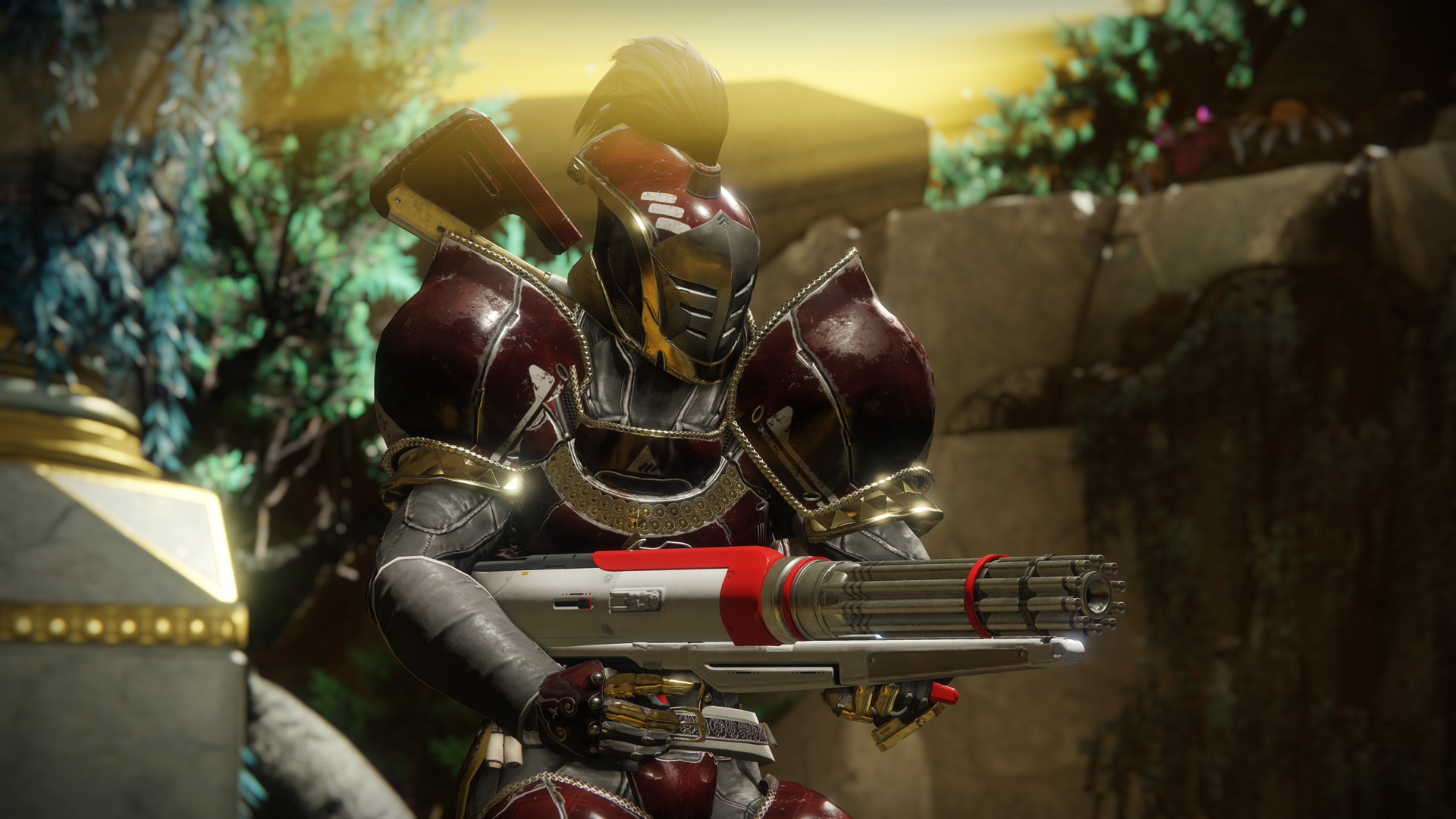
But if this is Bungie’s first real change to the fundamentals of Destiny 2, we now need to ask the question of what it means for the long-term. And while this update is, to use phrasing now becoming a Destiny community mantra, ‘a step in the right direction’, I still think things are too complicated to assume that all player wishes will be delivered.
The Go Fast update certainly depicts an increased regard for individual player agency. For too long, Destiny 2 players have felt they’ve had ownership of their Guardians taken away from them by underpowered systems and reduced control. Update 1.1.4 addresses that, at least on a micro level. The increased scope for in-the-moment action and varied Crucible tactics is the clearest sign. Where previously, we were beholden to safe, monotone squad tactics and frequently lopsided matchmaking, distinctive solo play is now entirely viable. After months spent vaguely acknowledging community complaints with non-committal pledges of “listening”, the tangible, philosophical shift in 1.1.4 is a landmark moment. The gates are now open.
Weekly digests, tales from the communities you love, and more
Similarly, I think we can expect Guardian power levels to notably increase from now on. While our flying space-wizards and galloping humanoid tanks previously felt godlike in their abilities, Destiny 2 has been typified by a brute-force version of the worst kind of Bungie balancing. The kind that involves nerf upon nerf until everyone and everything is equal because precisely nothing is remarkable at all. Very probably resulting from the studio’s traditional commitment to balancing PvE and PvP play as a unified whole - rather than tailoring character and weapon behaviour for the separate needs of either part of the game - the previous safety of the Crucible had bled through into the rest of Destiny 2 and rather drowned the power fantasy. But again, 1.1.4 typifies a clear shift away from that thinking, at least in terms of allowing a newly explosive Crucible to have a positive effect on Destiny 2 overall.
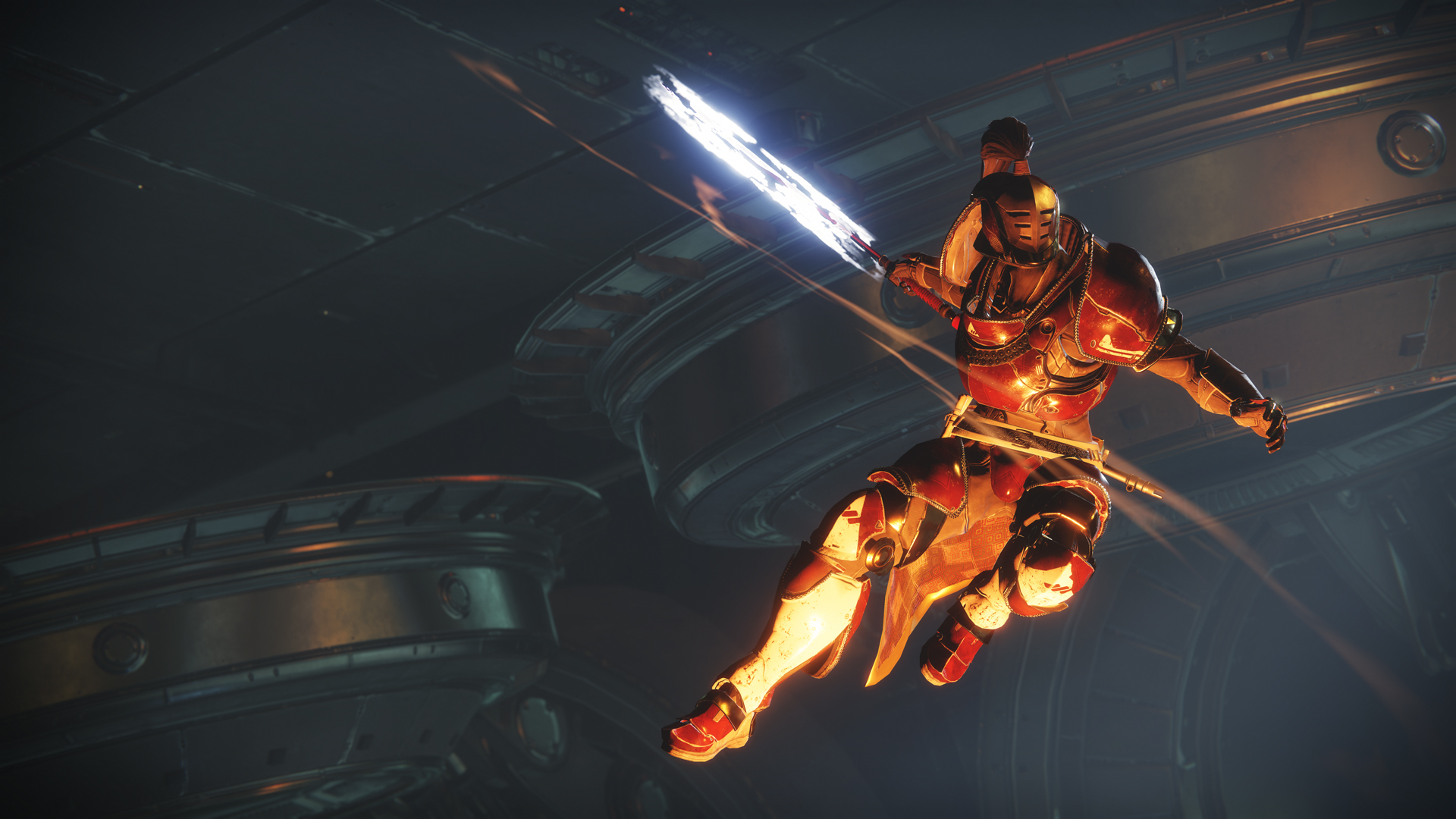
An extension of this changed approach to balance can also be seen in the reworked weapon set. Where previously, competitive Destiny 2 was dominated by the overpowered Autorifle class and a single weapon perk held by a handful of guns – the notoriously broken High Calibre Rounds, which radically throws off a target’s aim under fire, making it artificially difficult to fight back against a HCR user at range – Bungie’s response in 1.1.4 has been refreshingly un-Bungie. Rather than hammering High Calibre Rounds into the dirt (which actually would have been fine), the studio has raised other weapon classes in power, creating a new overnight meta where the long-neglected, more skilful, medium-range Pulse Rifle class is now capable of serious damage.
Autos are still entirely competitive, but they’re no longer the only thing that is. And with buffs to hand cannons too, and the general upgrade to special class abilities and supers making non-gun techniques a bigger part of strategy – not to mention the rainfall of Power ammo suddenly normalising the likes of swords, fusion rifles, and shotties, where once they were rare luxuries – it seems that Bungie’s approach now is not to crush power with nerfs, but simply to bury it under more power. And that’s good. That’s how fun happens.
That said, I’m still not 100% convinced that Destiny 2 version 1.1.4 necessarily represents a straightforward portal to a golden future. Or at least, not the exact future many hope for. I can still see a hint of old Bungie’s reluctant attitude in the granular details. For starters, while the increased lethality of Crucible gameplay has made giant-killing, one-vs-many takedowns a delightfully frequent occurrence once again, I have my doubts that Bungie will ever deign to deliver the direct, unambiguous reduction in across-the-board kill time the community is asking for. Given the scope and underlying intent of 1.1.4, I can’t help feeling that if that was going to happen, it would have happened here.
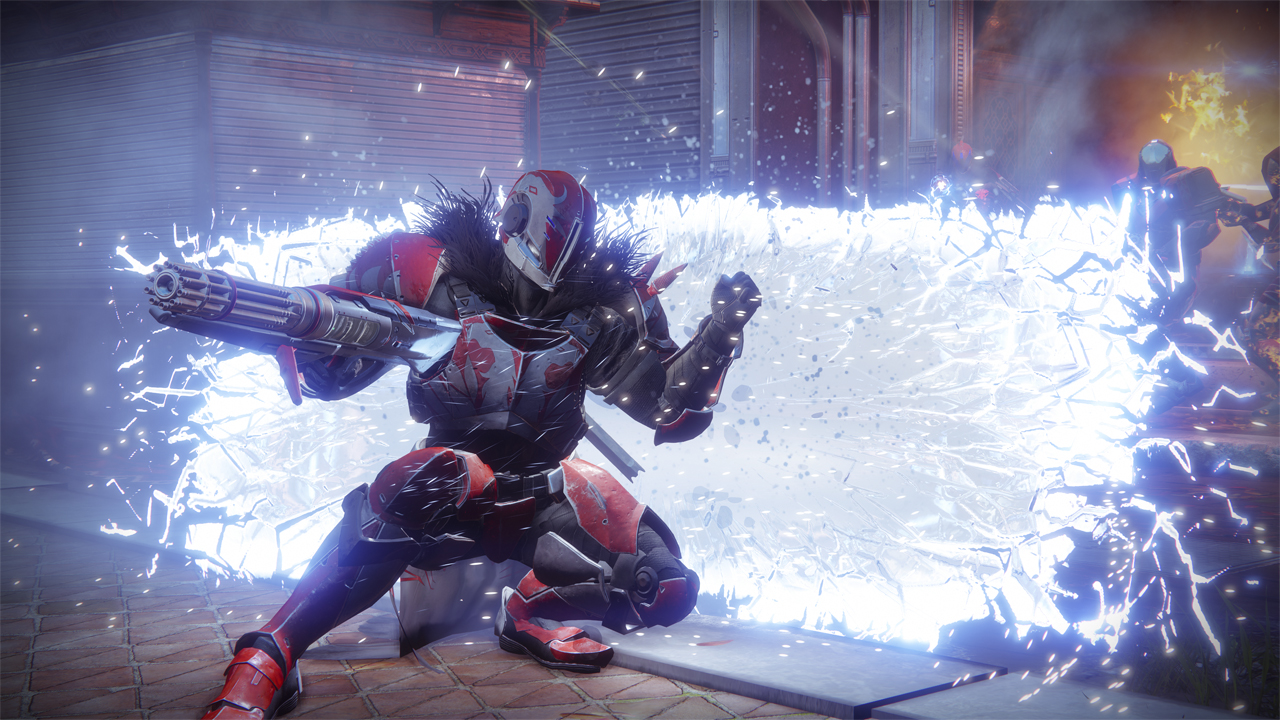
Instead, Bungie seems happier to shuffle the game’s moving parts around time-to-kill - to create a softer approximation of kill-time reduction - rather than explicitly hitting those damage sliders. In the future, I can see more of this approach coming up, as a kind of compromise between fan demands for faster, more dangerous gameplay, and the studio’s desire to maintain some semblance of reigned-in safety. Destiny 2 was designed with a low skill ceiling in mind, and the studio still seems reluctant to entirely betray that vision. Furthering this suspicion, Bungie has since discussed using the upcoming upgrade to Exotic weapons as a means of reducing TTK, which feels like another way of gently massaging the matter rather than hammering it into shape.
Similarly, this approach of building around a problem area rather than directly addressing it leads me to suspect that we might never get the overhauled Guardian skill-trees that have been desired almost since Destiny 2’s launch. Reducing the first game’s fully customisable set of character buffs, perks, and passive traits to two pre-set ability load-outs has crippled Destiny 2’s long-term RPG appeal. But while Bungie has pledged to turn D2 into the same sort of hobbyist game as its predecessor, it has notably skirted around the question of skill-trees, despite being entirely open about upcoming changes to other fundamentals of the game.
We know about the aforementioned Exotic overhaul. We know that a reworked gear modding system is coming. We knew about the 1.1.4 balance patch months before it arrived, and we now even know that the studio is actively working on changes to the weapon categorisation system that caused so many of Destiny 2’s gameplay problems in the first place. But skill trees? Not a word. My suspicion is that they’ll stay as rigid as they currently they are, albeit with new trees added, and that a more versatile gear customisation system (via mods) will have to pick up the slack.
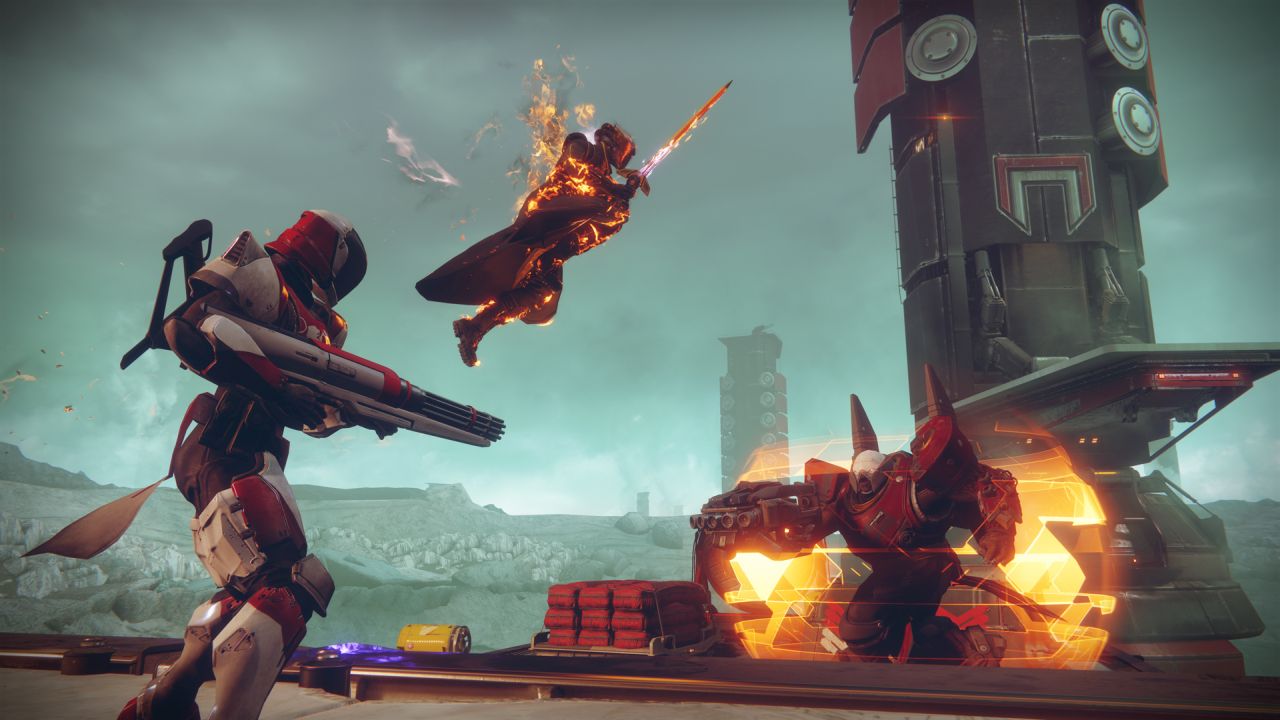
See also the long-requested feature of random perk rolls on weapon drops, which gave the first game such longevity as Guardians searched for the perfect ‘god roll’ edition of each gun. Random rolls have been mentioned as something the studio will address soon, but conspicuously have not been branded with the same, explicit, ‘we’re working on it’ phrasing recently attached to other hot issues. As a long-time Destiny player with more than enough experience of the player/studio tango of promise and delivery, trust me when I say the nuances of Bungie’s wording and presentation are very important. Even in times of great positivity, the granular details can really say a lot.
None of this is necessarily problematic, mind, as long as Bungie makes drastic enough changes in the areas it is willing to change. If the promised Exotic upgrades are potent enough, and each new wave of Exotic gear concepts is designed in clear excess of the mundane, pedestrian lot the game launched with, then we might have a legitimate, alternative path to player power and the creative, RPG class-building that gave the first game such legs. Ditto a truly potent gear modding system. If Bungie will trust its players with the ability to upgrade and truly modify the perks of their weapons and armour, then we might actually end up with a deeper and more compelling sense of long-term character ownership than the first Destiny had, skill-trees be damned.
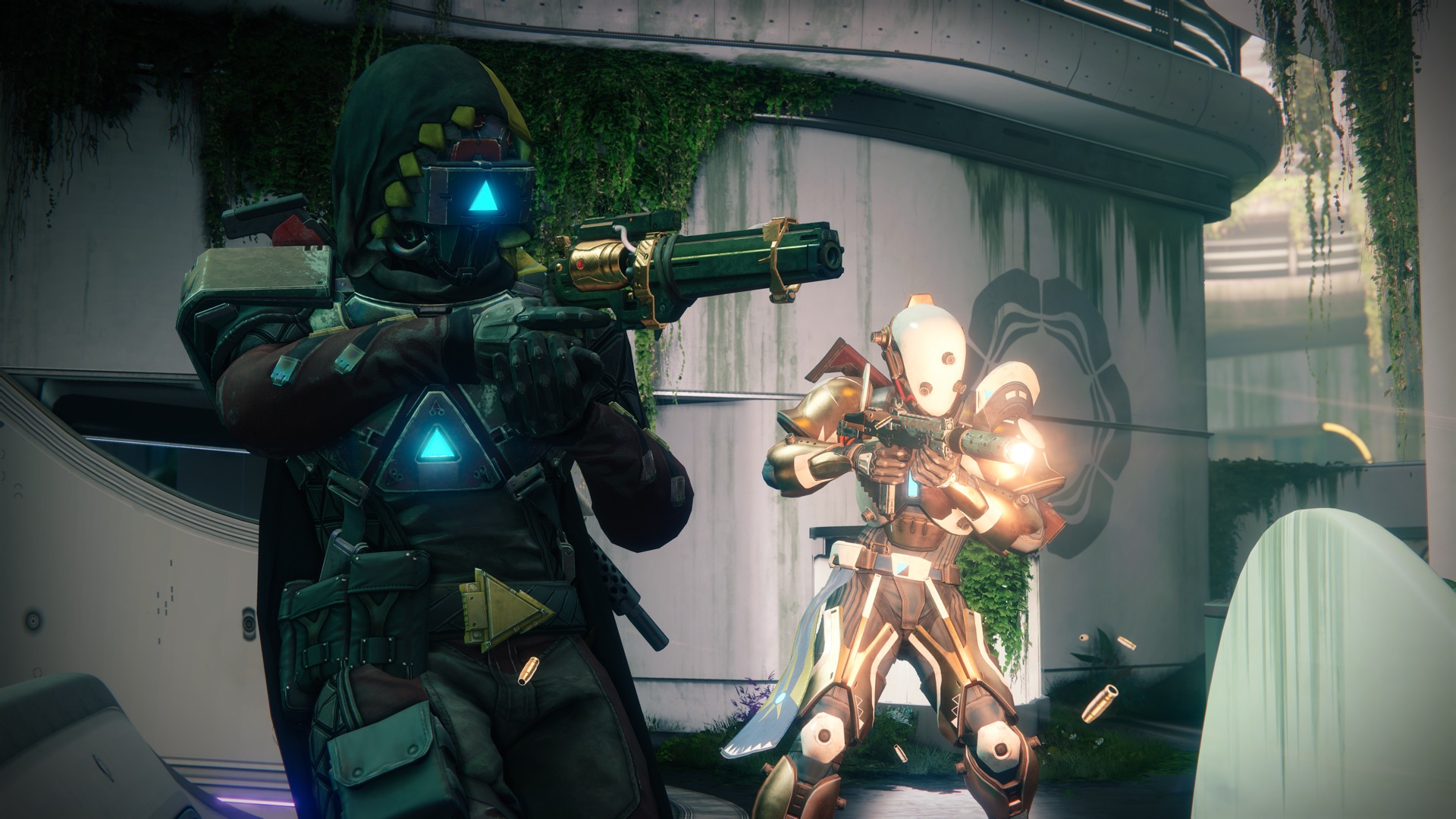
However the studio gets there though, it can’t play safe any longer. In terms of systems, depth, and versatility, the original Destiny currently feels like the sequel, with Destiny 2 a limited concept sketch. That has to change if the game is going to have a sustainable life after the second (and final) season pass expansion drops over the next couple of months.
One thing that Bungie has been very clear about lately is that Destiny 2 isn’t going to revert into a do-over of the first Destiny. And while it’s easy, with the sequel losing so much by spurning so many of its precursor’s best qualities, to crave a simple return to what worked so well for three years, a forward-looking approach is the right one. Destiny 2 is a sequel, not just an expansion, and so it has to evolve the Destiny concept in new directions. But fundamentally, Bungie needs to remember the difference between ‘evolve’ and ‘change’. One concept necessitates growth, improvement, and increased strength. The other doesn’t. Sometimes less is more, but when you’re building a three-year hobby for a community of serious enthusiasts, you have to give them everything you possibly can.
